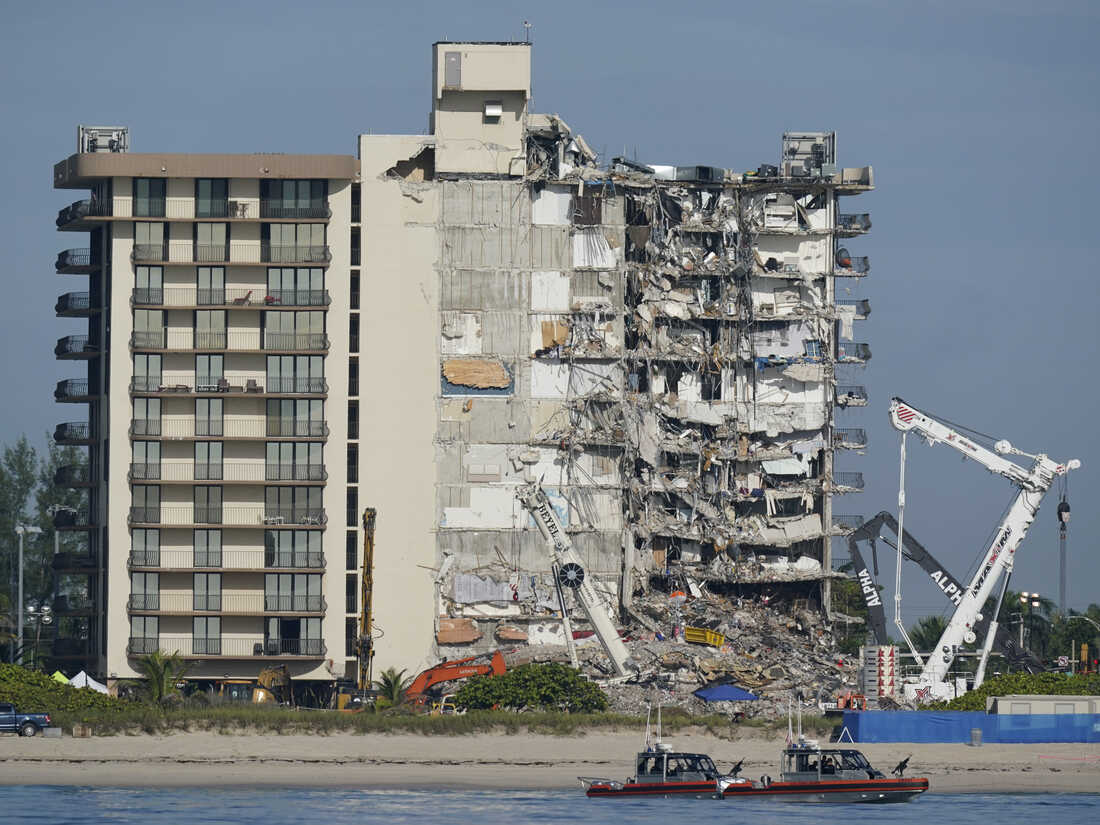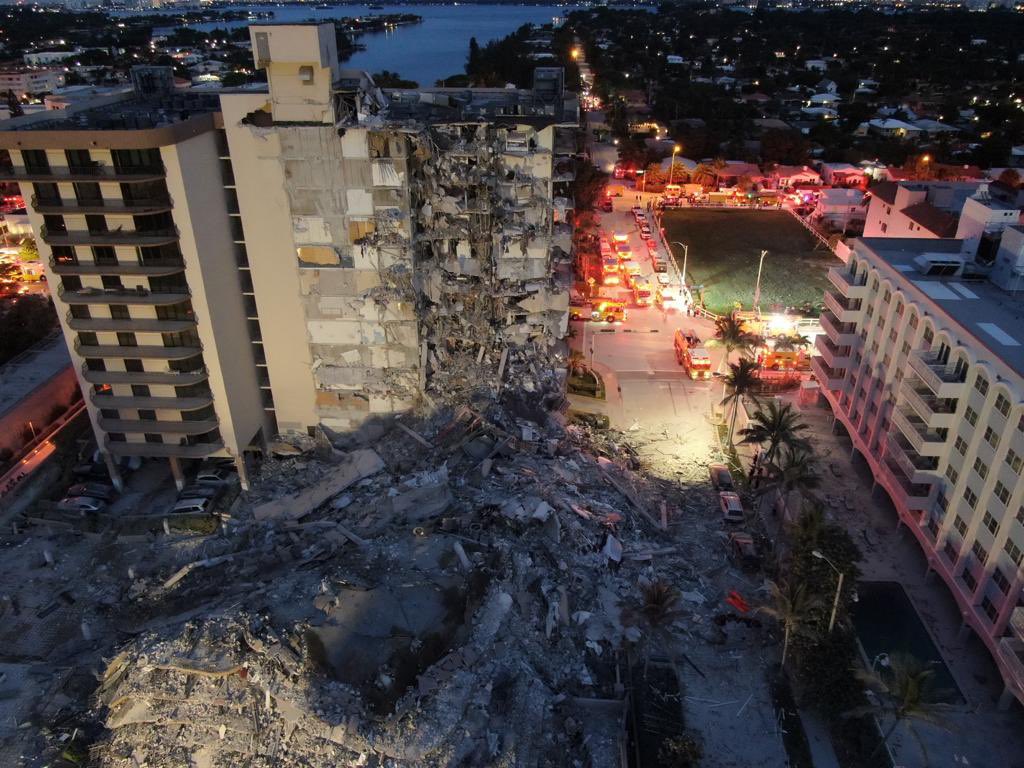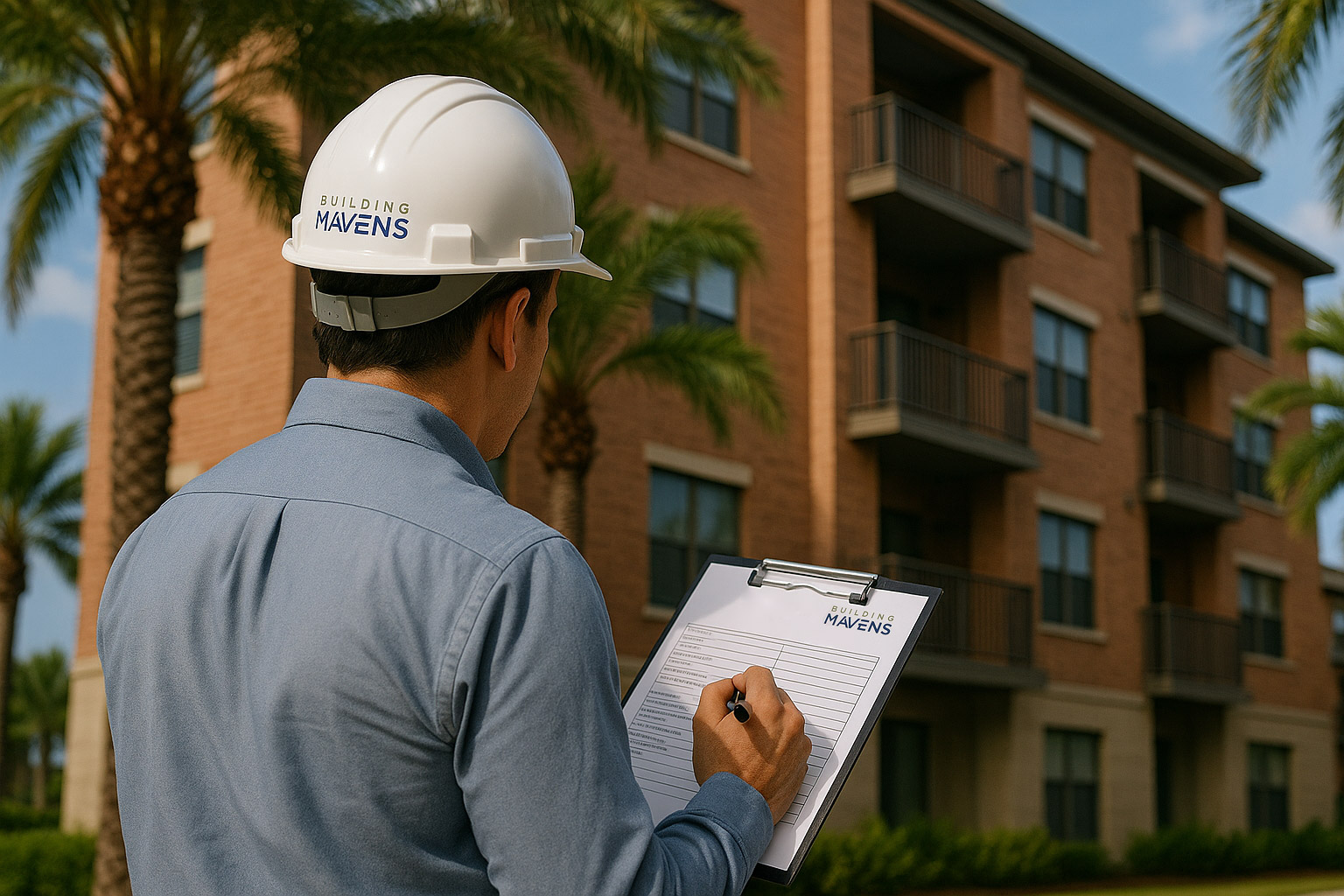
Monroe County’s Building Safety Inspection Program (BSIP) has recently undergone significant updates. Notices are now being sent via certified mail to the owners of condominium buildings that are 25 years old or older and structures three stories or higher. These updates are aimed at ensuring higher safety standards and addressing the unique challenges faced by buildings in this coastal region. At Building Mavens, we understand the importance of staying informed about these changes, and we’re here to break down what these updates mean for property owners, managers, and residents.
Key Updates to Monroe County’s Building Inspection Program
Monroe County has introduced several revisions to its Building Safety Inspection Program, reflecting the evolving standards in building safety and the specific needs of the South Florida coast. Here’s a detailed look at the major changes:
Mandatory Recertification Intervals
- Initial Inspections – Buildings are now required to undergo their first inspection at 25 years of age, a shift from the previous 40-year requirement. This change aligns with initial inspection timeline updates across the state and is particularly important for Monroe County, where the coastal environment can accelerate wear and tear on structures.
- Subsequent Inspections – After the initial inspection, recertifications are mandated every 10 years, ensuring continuous compliance and safety.
Expanded Scope of Inspections
The new guidelines emphasize a more thorough examination of key structural elements, including foundations, roofing systems, and load-bearing walls. Inspectors will also assess electrical, plumbing, and mechanical systems to ensure comprehensive safety evaluations.
Inspector Qualifications
Building inspections must be conducted by licensed engineers or architects, ensuring that evaluations are performed by professionals with the necessary expertise to assess building conditions accurately.
Detailed Reporting and Documentation
Inspectors must provide detailed reports, including photographic documentation and recommendations for any necessary repairs. These reports must be submitted to the Monroe County Building Department for review and record-keeping.
General Considerations and Structural Guidelines
The General Considerations and Guidelines document provides further insights into the structural inspection process. Key highlights include:
- Scope of Structural Inspection – The primary goal is to ensure the building is structurally sound and safe for continued use under its current occupancy. Inspections focus on assessing the general structural condition, identifying signs of deterioration, and evaluating the effects of time on construction materials.
- Visual Examination – Inspectors look for surface imperfections such as cracks, distortion, sagging, misalignment, signs of leakage, and peeling finishes as potential indicators of structural issues.
- Manual Procedures – In cases where visual inspection is insufficient, manual procedures such as chipping small concrete areas for closer examination are encouraged.
- Deterioration and Repair – Structural deterioration always requires repair. The type of repair depends on the importance of the affected member and the degree of deterioration. Cosmetic repairs may suffice for non-critical elements, while significant structural components may require more extensive repairs or reinforcement.
This document describes each of the key structural elements and potential issues in great detail, so we encourage any Monroe County building or property owner who falls under this updated program to review it thoroughly.
Implications for Property Owners
For property owners, these updates necessitate a more proactive and detailed approach to building maintenance. Here’s a deeper look into the specific implications:
Financial Planning and Budgeting
Effective financial planning and budgeting are crucial under the updated SIRS and Milestone Inspections laws. Property owners must now be diligent in creating and managing reserves specifically for structural maintenance and repairs, similar to the requirements outlined in Florida’s 2023 Senate Bill 154 concerning Structural Integrity Reserves Studies (SIRS).
- Establishing Structural Integrity Reserves – Conduct a reserve study to assess the long-term financial needs for maintaining the building’s structural integrity. This study should include a detailed inventory of all major structural components, their current condition, and an estimated timeline for repairs or replacements.
- Regular Contributions to Maintenance Reserves—Based on the reserve study’s findings, Make regular contributions to the maintenance reserve. This proactive financial strategy ensures that funds are available for mandatory inspections and any subsequent repairs.
- Periodic Reviews – Conduct periodic reviews of the reserve study and adjust the funding plan as necessary to reflect any changes in the building’s condition or maintenance needs.
Enhanced Safety and Liability Management
The updated BSIP significantly enhances building safety. Regular inspections help identify potential hazards such as structural weaknesses, electrical issues, or plumbing failures before they pose serious risks. Promptly addressing these issues prevents accidents and potential fatalities, creating a safer environment for residents, tenants, and visitors. Compliance with the BSIP can also protect property owners from legal liabilities by demonstrating that all necessary precautions have been taken to maintain the building’s safety.
Increased Property Value and Marketability
Buildings that adhere to rigorous safety standards and demonstrate a history of regular maintenance tend to have higher property values and better marketability. Compliance with the updated BSIP enhances the appeal and value of the property in the competitive real estate market. Well-maintained properties are less likely to experience significant depreciation, preserving the building’s structural integrity and investment value over time.
Building Longevity and Sustainability
The coastal environment of Monroe County presents unique challenges, including saltwater corrosion, high humidity, and severe weather conditions. The updated BSIP addresses these factors by implementing earlier and more frequent inspections, which are critical for mitigating the risks associated with these environmental conditions. Regular inspections and maintenance can significantly extend the lifespan of a building, reducing the need for extensive renovations or rebuilds and contributing to sustainability.
Facilitating Compliance with Insurance Requirements
Insurance companies often require properties to meet specific safety standards and undergo regular inspections to qualify for coverage. The updated BSIP aligns with these requirements, making obtaining and maintaining adequate insurance coverage easier for property owners. Compliance can also lead to more favorable insurance premiums.
Collaboration with Licensed Professionals
The requirement that inspections be conducted by licensed engineers or architects ensures that evaluations are performed by experts with the necessary knowledge and experience. This collaboration can lead to more effective and efficient maintenance strategies, ultimately enhancing the property’s safety and longevity.
Comparison with Other Florida Jurisdictions
Monroe County’s updated BSIP follows similar trends in other regions. Our recent articles on the 2023 Residential Building Recertification Requirements in Boynton Beach and the Boca Raton Building Recertification Ordinance 5589 highlight the importance of frequent and comprehensive inspections, tailored to the unique environmental factors of each area.
Planning Your Next Building Safety Inspection
Understanding the inspection process can help property owners prepare for what to expect. Here’s a step-by-step overview:
- Scheduling the Inspection – Contact a licensed engineer or architect to arrange a convenient time for the evaluation before the mandated deadlines.
- Conducting the Inspection – The inspector will assess the building’s structural components, including foundations, roofs, and load-bearing walls, as well as electrical, plumbing, and mechanical systems.
- Documenting Findings – Detailed reports, including photographic evidence and recommendations for repairs, are prepared and submitted to the Monroe County Building Department.
- Submitting Reports – Property owners are responsible for ensuring that any required repairs are completed within the specified timeframe.
- Follow-Up Inspections – After necessary repairs, a follow-up inspection may be required to confirm that the building meets all safety standards.
Recommendations for Property Owners
To stay ahead of the curve, property owners should consider the following recommendations:
Confirm if Your Condo Is up for Inspection Soon
The county provides a full list of condominiums that will receive an inspection notice that they will be subject to the Building Inspection Program (BISP). By reviewing this document, owners can get ahead of the curve if their condo is on the list. If your condo is on the list, start planning now. If it is not yet on the list but you expect it to be soon, keep checking back. This document is updated regularly.
Schedule Inspections Early
Don’t wait until the last minute to schedule your inspection. Early planning can help avoid delays and ensure timely compliance with the updated BSIP requirements. This proactive approach allows property owners to address any identified issues promptly and efficiently while avoiding any financial penalty that a late inspection can cause.
In the event of an emergency, you can request a 180 day inspection extension by filling out a request form. However, it’s critical to note that submitting this request form does not guarantee an extension. It is expected that your milestone inspection will be completed by the date provided in your notice and the county gives building owners ample time to get their inspections done. As such, in order to be granted an extension, you must be able to show “good cause” for not being able to complete a building inspection in a timely manner. We recommend you do everything you can to avoid this scenario by completing your inspection as soon as possible.
Budget for Repairs
Drawing from the principles outlined in the Structural Integrity Reserves Studies (SIRS) as mandated by Florida’s Senate Bill 154, property owners must establish a dedicated financial reserve specifically for structural maintenance and repairs. Key steps include:
- Conduct a Reserve Study – Engage licensed professionals to perform a comprehensive reserve study. This study will evaluate all major structural components, assess their current condition, and estimate the timeline and costs for future repairs or replacements.
- Integrate Costs into the Annual Budget – Allocate funds for structural maintenance within the annual budget based on the reserve study’s findings.
- Regular Contributions – Make regular contributions to the maintenance reserve to build up sufficient funds over time, preventing financial shortfalls that could delay critical repairs.
- Periodic Reviews – Regularly review and update the reserve study to reflect changes in the building’s condition or maintenance needs, ensuring the reserve remains adequate.
Learn more about Structural Integrity Reserve Studies in our dedicated article.
Stay Informed
Keep up-to-date with the latest building codes and inspection requirements by following industry news and updates from reputable sources like Building Mavens. Staying informed about regulatory changes and best practices helps property owners remain compliant and proactive in maintaining their buildings. Subscribe to our newsletter to be among the first to get access to insights like this, webinars, and more.
Final Thoughts
The updates to Monroe County’s Building Safety Inspection Program reflect a commitment to enhancing building safety and addressing the unique challenges of the region. By understanding these changes and preparing accordingly, property owners can ensure the longevity and safety of their buildings. For more detailed guidance on building inspections and recertification requirements, explore our articles on Florida’s New 2023 Senate Bill 154 and other related topics on our blog.
Contact the team at Building Mavens today for professional inspection services and expert advice tailored to your needs. Let’s work together to build a safer, stronger future for Monroe County.
Additional Monroe Country Resources:
- Milestone Inspection Form (Must be submitted with Milestone Inspection Report)
- Fee Resolution (Effective 12/13/2023)
- Building Safety Inspection Program Quick Reference
- General Considerations and Guidelines – Structural
- Minimum Inspection Procedural Guidelines for Structural
- 2023 Condominium List (Subject to Change)
- 180 Day Extension Request
About the Author

With a comprehensive background spanning public and private projects, Scott’s proficiency encompasses structural engineering design, construction oversight, and forensic analysis. His role involves investigating structural failures, construction defects, and code compliance to ensure project integrity while upholding safety standards and building codes. Beyond his investigative prowess, Scott is a skilled design engineer, contributing to diverse architectural facets including building envelope systems and designs for various materials. His extensive portfolio includes projects ranging from residential designs to commercial structures like warehouses and piers. Across all phases of project development, from conception to inspection, Scott’s dedication to innovative and compliant engineering solutions shines through.
Contact me for more information: info@buildingmavens.com






